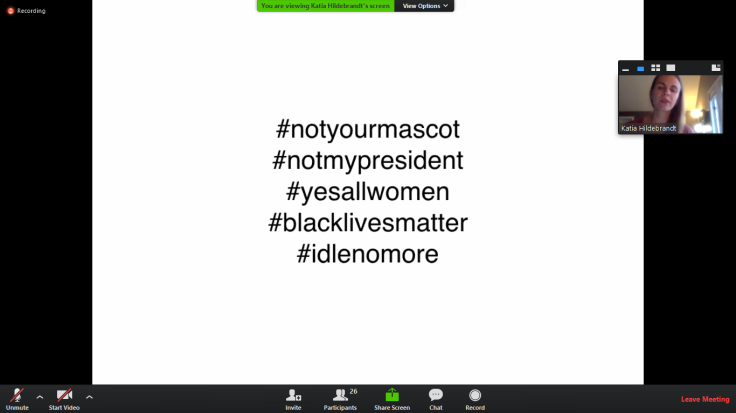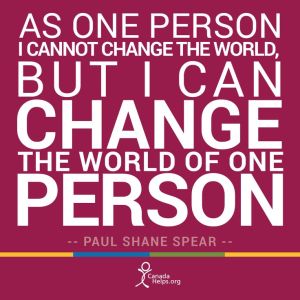Can online social activism be meaningful and worthwhile? Is is possible to have productive conversations about social justice online?
These are tricky questions asked by my #ECMP355 professor Katia, but I am willing to give it my best shot at answering them. First off, we need to think about what social activism really is before we can think about it being online. Social activism is the promotion and guidance used to cultivate changes in business practices, business policies or the government to influence social change. The duties of a social activist include communicating with policy makers, researching for the cause, and organizing responses for the media. Therefore, online social activism is actively promoting change to happen for a certain cause by using online technology. Another way of saying it is: Internet activism, which is the use of electronic communication technologies such as social media, e-mail, and podcasts for various forms of activism to enable faster and more effective communication by citizen movements, the delivery of particular information to large and specific audiences as well as coordination.
Second off, we need to reflect upon previous online social activist campaigns such as: Kony 2012, the Ice Bucket Challenge, #BringBackOurGirls, #ParisAttacks, #MarriageEquality, the ones below in the screenshot from my #ECMP355 class, and many others. All of these campaigns listed have in some way been shown on social media and have made themselves known to many people online.

As I look at these campaigns, I can see that I have heard of quite a few of them, but I have personally failed at doing anything valuable about them. In class we talked about something called Slacktivism, which is a term that combines the words “slacker” and “activism” to refer to simple measures used to support an issue or social cause involving little to no effort on the part of participants. People who fit into the #slacktivism category lack engagement and commitment and fail to produce any tangible effect, in terms of promoting a cause. I will have to admit to you, that I did change my profile picture to raise awareness about the Paris Attacks a while back, but as far as doing anything else valuable for that cause… I did nothing. Therefore, I see myself in that sense as a slacktivist, but not that I know better, I will try harder to actually put more time and effort into helping a few of these social activist causes out.
 The thing about there being so many causes to support, is actually deciding what you want to support because I know that I cannot help all of these. Therefore, in this case I like think to myself, “you cannot change the world, but you can change the world for one person.” All it takes is a few steps towards helping one cause to make a difference in someone’s life by supporting and promoting, equity & social justice in our world.
The thing about there being so many causes to support, is actually deciding what you want to support because I know that I cannot help all of these. Therefore, in this case I like think to myself, “you cannot change the world, but you can change the world for one person.” All it takes is a few steps towards helping one cause to make a difference in someone’s life by supporting and promoting, equity & social justice in our world.
Now, back to those questions above. I believe that online social activism can be meaningful and worthwhile if each person takes responsibility for their own actions online and uses their words wisely and in a way that is respectful and empathetic, rather than in a disrespectful way or choosing to say nothing. I agree with Katia’s blog when she says “we need to be personally responsible citizens” online because we need to “begin deconstructing the justice and equity issues that continue to negatively affect those in online spaces”. As for having possible productive conversations about social justice online… I believe it is, and again, we need to step up to the challenge as teachers and use our “privilege to speak out and use [our] network for more than just [our] own benefit or self-promotion“. Because sometimes, others are not heard or able to speak up, so we need to participate in meaningful ways to promote equity in our networked spaces even though we may receive some backlash. I believe that it is worth it to give up some of my privilege, so that others might gain some more respect and proper recognition and treatment than what they have already been receiving. I too am passionate about equity and social justice and I feel more strongly now, that it is my duty as a digital citizen to promote equity in my online spaces. What do you think your duty is as a digital citizen?
June 22, 2017 at 3:24 pm
Great use of questioning here to spark discussion, Lila!
LikeLiked by 1 person
June 22, 2017 at 6:47 pm
Thanks Jordan!
LikeLike
June 25, 2017 at 10:50 am
I hosted a student last summer in August who lived just outside of Paris. Her parents were so relieved that she was not there to witness the chaotic scene that month. I guess I did my small part. It was still slacktivism because it was just circumstantial that she was here and I was hosting. Much like someone who wears an orange shirt every day and when Orange Shirt Day comes around it looks like he is doing his part.
LikeLiked by 1 person